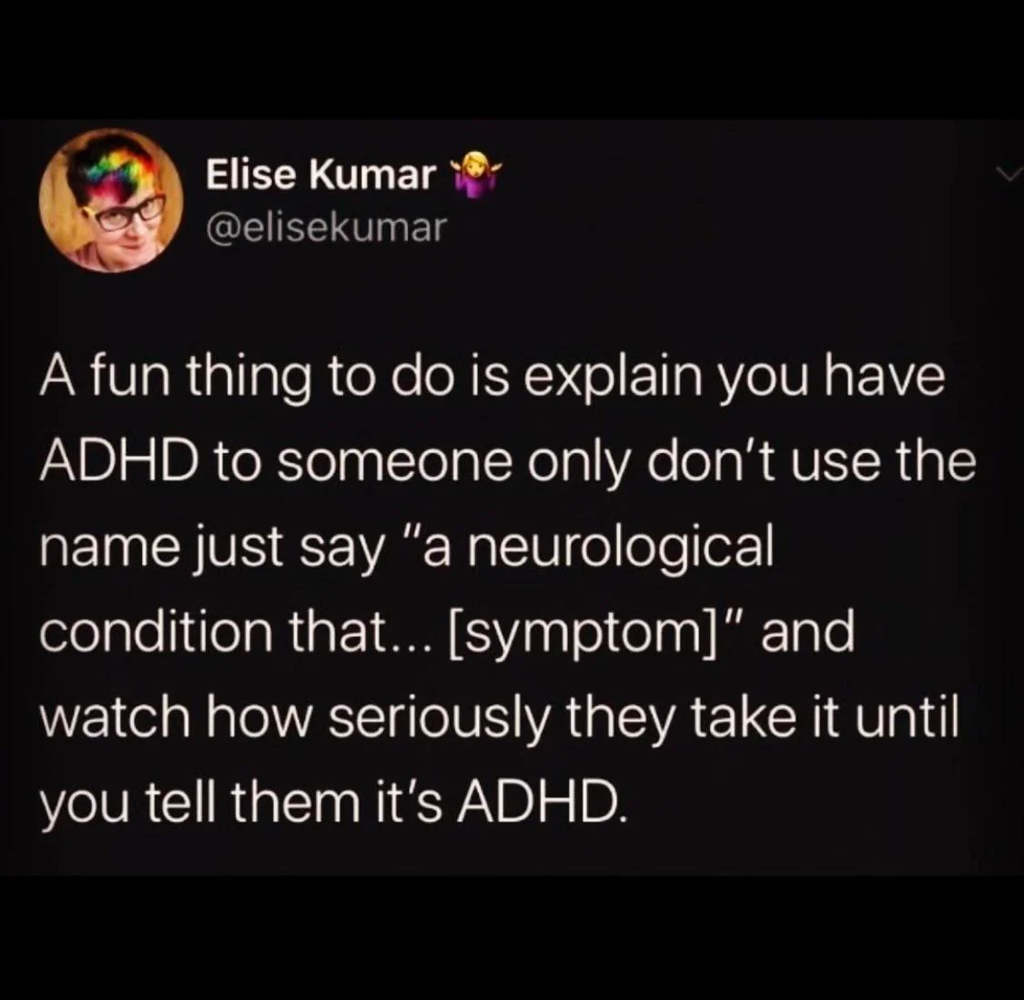this post was submitted on 22 Nov 2023
544 points (96.9% liked)
ADHD memes
9966 readers
936 users here now
ADHD Memes
The lighter side of ADHD
Rules
Other ND communities
- !adhd@lemmy.world - Generic discussion
- !ausomememes@lemmy.dbzer0.com
- !autism@lemmy.world
- !autisticandadhd
- !neurodivergence@beehaw.org
founded 2 years ago
MODERATORS
you are viewing a single comment's thread
view the rest of the comments
view the rest of the comments

Man, I feel that. Something that I've been thinking about for a while now is how disabled people (whether it's a condition that affects their brain, or body, or both) end up sort of "stress-testing" society.
In this case, your comment makes me sad because I've seen similar instances to what you describe, but also, I am reminded of countless more people who seem unlikely to have ADHD, but also don't do well with tough love. The harmful impact of tough love is more pronounced in people with ADHD though, and that's what I mean about "stress-testing".
This opinion is also heavily informed by the fact that I'm also autistic and diagnosed in my teens. I spent too many years trying to fit myself in a box that would never fit me, and I see so many people who *technically" fit in the box, but seem profoundly uncomfortable. From this angle, autism feels like my ticket to liberation because I think if I could fit inside the box (of societal expectations etc.), then I'd have accepted making myself uncomfortable in a model that wasn't built for my wellbeing.
it's the old adage that designing for disability benefits everyone, and good lord it just never stops being true.
like, no one functions perfectly at all times, EVERYONE has points in their life where they just can't perform to expected standard and if things are built with disabilities in mind then they can simply make use of that when needed.
Sure you might have two functional legs right now, but who knows when you'll lose one or both? and at some point you'll become old and gangly and the idea of walking 3 stories with groceries will make you weep. So maybe let's design things with disability in mind so it's simply never a thing anyone has to worry about.
I feel ya. I think that for mild mental health issues, simply giving people an acceptable excuse for “not having to fit in the box,” probably does more than the actual treatment.